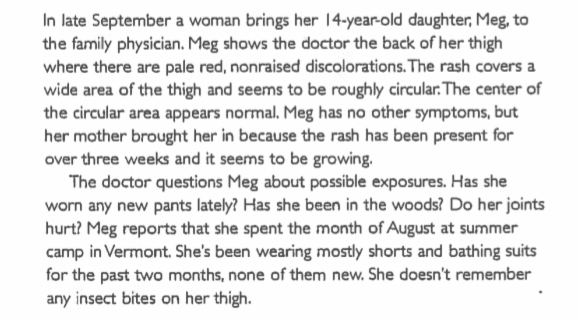Chapter 18 Case Study
1/14
There's no tags or description
Looks like no tags are added yet.
Name | Mastery | Learn | Test | Matching | Spaced |
|---|
No study sessions yet.
15 Terms
Bacterial endocarditis
CASE 1 Which cardiovascular infection condition is this?
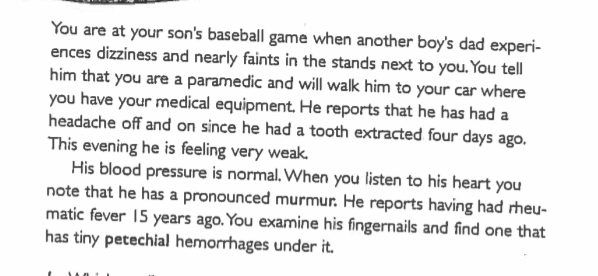
bacteria from mount entered bloodstream during tooth extraction
CASE 1 What is the most likely route of transmission?
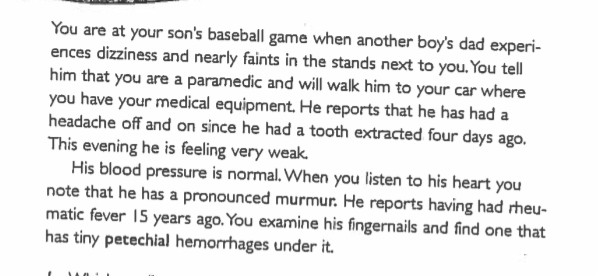
The bacteria can colonize the scarred heart valves easier due to rheumatic fever.
CASE 1 What's the connection, if any, with rheumatic fever?
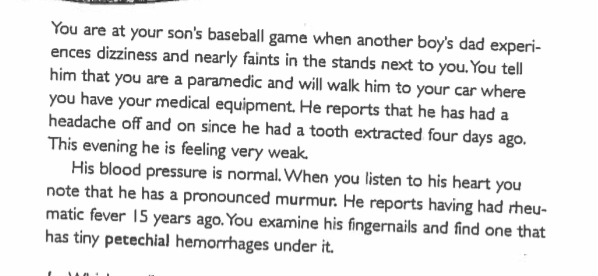
petechial hemorrhages in nails are a sign often signs of this disease
CASE 1 Why did you look at his fingernails?
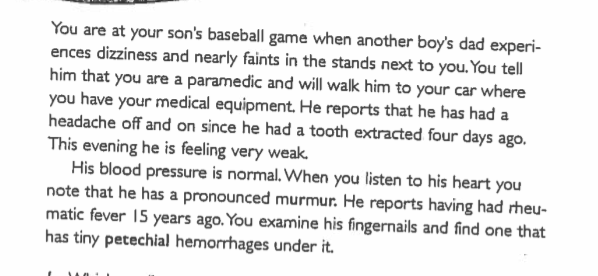
IV antibiotics, prophylactic antibiotics before invasive procedures like tooth extractions
CASE 1 What is the treatment or preventative?
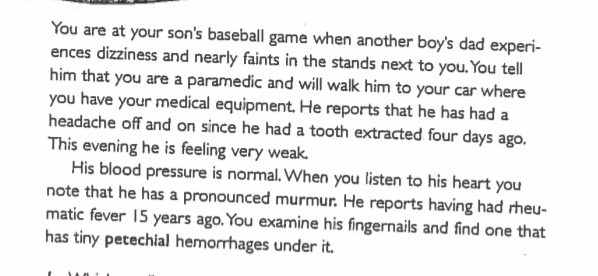
Malaria
CASE 2 What is the name of the condition you suspect?

Plasmodium
CASE 2 What is the most likely causative organism?

eukaryotic
CASE 2 Is this pathogen eukaryotic or prokaryotic?

blood cells
CASE 2 (CHECK ALL THAT APPLY) What are the two main places in the human body that are exploited by the causative organism in this disease?

No, it is transmitted by mosquitos
CASE 2 Can this individual transmit the infection to others and why?

lyme disease
CASE 3 On the basis of Meg's oral history, what is the most likely diagnosis?
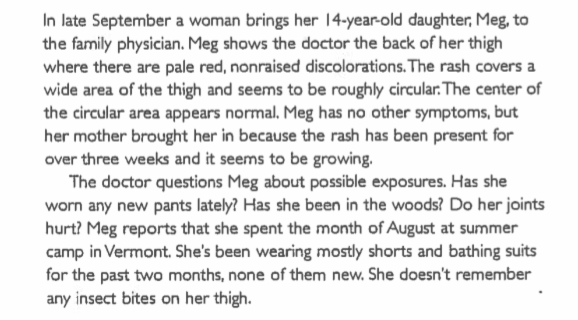
tick bite
CASE 3 How did she most likely acquire her infection?
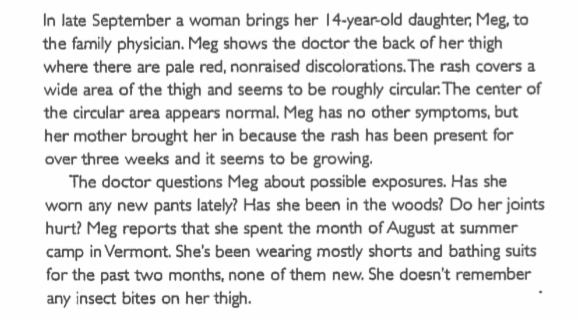
Yes, it is more prevalent in the Northeast US and rare in Arizona
CASE 3 Would the diagnosis be any different if Meg had attended camp in Arizona. Explain.
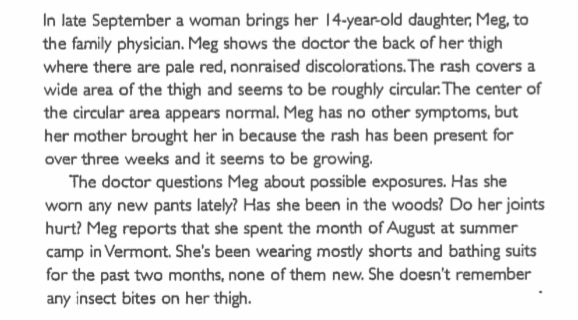
A common sign/ symptom is pain or swelling of joints (arthritis)
CASE 3 Why does the doctor ask Meg if her joints hurt?
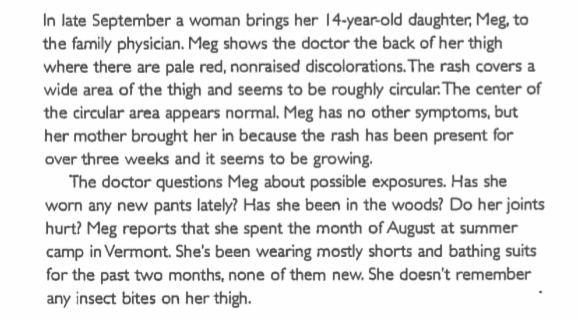
Avoid ticks with repellent and protective clothing.
CASE 3 Meg's mom, upon hearing the presumptive diagnosis, declares that Meg will not return to that camp, which she loves and had planned to attend next summer. The doctor suggests that Meg need only take some precautions. How can she protect herself from getting this infection again?
